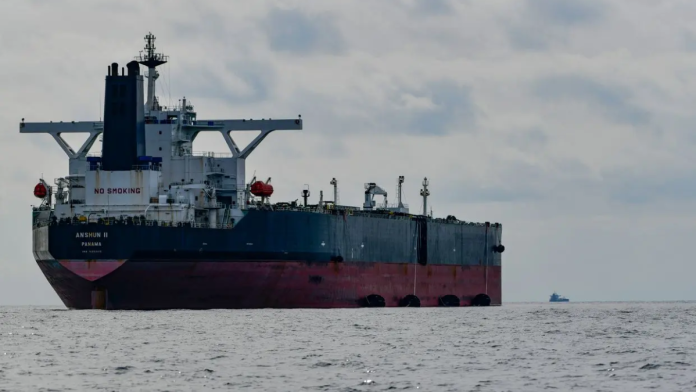In the first half of 2025, Taiwan became the world’s largest importer of Russian naphtha, a key fossil fuel derivative used in the chemical and petrochemical industries. Naphtha is particularly important for Taiwan’s semiconductor sector, which produces chips for electronics worldwide. The island’s dependence on this fuel highlights the critical role it plays in keeping Taiwan’s technology industry running.
Taiwan’s monthly imports of Russian naphtha have surged sixfold since 2022, according to a recent report by a group of international non-profits, including CREA, Ecodefense, and the Environmental Rights Foundation. Between February 2022 and June 2025, Taiwan imported 6.8 million tons of naphtha, worth about $4.9 billion. In just the first half of 2025 alone, imports totaled $1.3 billion, underscoring the rapid growth in demand.
This volume represents 20% of Russia’s total naphtha exports, making Taiwan the third-largest buyer globally. A significant portion, about 72%, comes from Novatec, a Russian company currently under U.S. sanctions. According to Isaac Levi of CREA, Taiwan’s reliance on Russian naphtha creates security risks for its petrochemical supply chains and increases the island’s exposure to potential geopolitical disruptions.
China blacklists U.S. naval shipbuilder Huntington Ingalls in fury over Taiwan weapons sales
Economic Impact and Support to Russia
The surge in imports has major financial implications. The mineral extraction taxes generated from these purchases are estimated at $1.7 billion, revenue that helps fund Russia’s military operations. This amount is reportedly sufficient to finance 170,000 drones, which have been used in air strikes in Ukraine.
Taiwan has publicly supported Ukraine since the conflict began in 2022, providing $50 million in bilateral aid. However, over the same period, the island imported $11.2 billion in Russian fossil fuels, demonstrating the tension between economic necessity and international solidarity. Vladimir Slivyak of Ecodefense noted that these imports indirectly support Russia’s war efforts, highlighting the paradox of Taiwan’s situation.
Iran and Russia agree on nuclear power project as United Nations sanctions approach
Naphtha accounts for 26% of Russia’s clean oil exports, meaning Taiwan’s purchases make it a key customer. By buying such a large share of Russia’s naphtha exports, Taiwan helps generate revenue that Russia continues to rely on, despite sanctions imposed by Western countries. This trade illustrates the complex balance between energy needs and global political pressures.
Supply Risks and Industry Dependence
Taiwan’s dependence on Russian naphtha also introduces risks for its semiconductor and electronics industries. Any disruption in supply could slow chip production, affecting both domestic and global technology markets. Experts warn that this reliance could make Taiwan vulnerable to secondary sanctions or trade restrictions in the future.
Hei Seki sanctioned by China for long-standing criticism on Taiwan and disputed territories
While Taiwan has reduced its imports of Russian coal—falling by 67% in early 2025 compared to 2024—its dependence on naphtha remains high. This reliance strengthens Taiwan’s energy and industrial link to Russia, even as the island works to diversify other fossil fuel sources.
The report emphasizes that Taiwan’s imports place the country at the center of global energy and geopolitical debates. Being a major buyer of Russian naphtha while publicly supporting Ukraine demonstrates the complexity of the island’s position in international relations. Analysts warn that the situation could have broader implications for Taiwan’s economic stability and security of supply.
Taiwan has become the leading importer of Russian naphtha in early 2025. The surge in imports fuels the island’s vital semiconductor and chemical industries but also generates significant revenue for Russia. According to experts from CREA and Ecodefense, this reliance introduces economic, industrial, and geopolitical risks while highlighting the delicate balance Taiwan maintains between its energy needs and international commitments.


